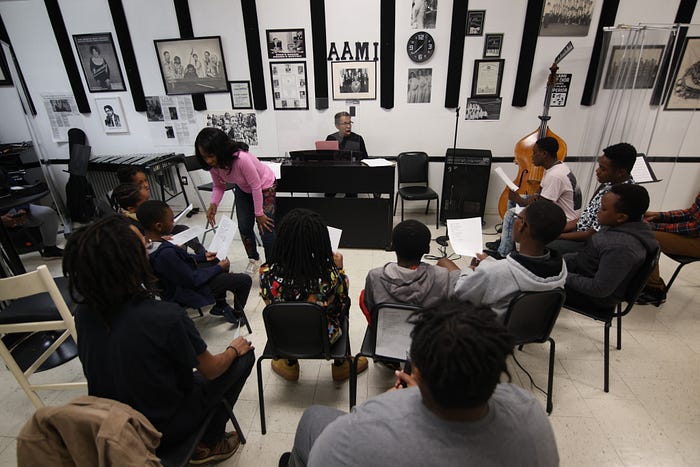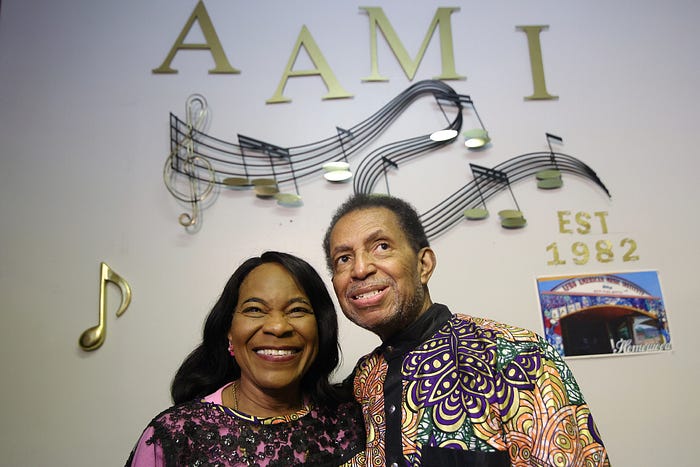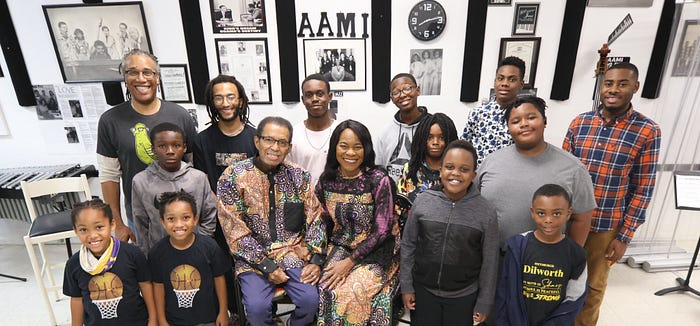AFRO-AMERICAN MUSIC INSTITUTE CELEBRATES 36 YEARS
http://www.indiegogo.com/projects/building-today-for-tomorrow/x/267428
Pain Relief Beyond Belief
http://www.komehsaessentials.com/
PITTSBURGH JAZZ
From Blakey to Brown, Como to Costa, Eckstine to Eldridge, Galbraith to Garner, Harris to Hines, Horne to Hyman, Jamal to Jefferson, Kelly to Klook; Mancini to Marmarosa, May to Mitchell, Negri to Nestico, Parlan to Ponder, Reed to Ruther, Strayhorn to Sullivan, Turk to Turrentine, Wade to Williams… the forthcoming publication Treasury of Pittsburgh Jazz Connections by Dr. Nelson Harrison and Dr. Ralph Proctor, Jr. will document the legacy of one of the world’s greatest jazz capitals.
Do you want to know who Dizzy Gillespie idolized? Did you ever wonder who inspired Kenny Clarke and Art Blakey? Who was the pianist that mentored Monk, Bud Powell, Tad Dameron, Elmo Hope, Sarah Vaughan and Mel Torme? Who was Art Tatum’s idol and Nat Cole’s mentor? What musical quartet pioneered the concept adopted later by the Modern Jazz Quartet? Were you ever curious to know who taught saxophone to Stanley Turrentine or who taught piano to Ahmad Jamal? What community music school trained Robert McFerrin, Sr. for his history-making debut with the Metropolitan Opera? What virtually unknown pianist was a significant influence on young John Coltrane, Shirley Scott, McCoy Tyner, Bobby Timmons and Ray Bryant when he moved to Philadelphia from Pittsburgh in the 1940s? Would you be surprised to know that Erroll Garner attended classes at the Julliard School of Music in New York and was at the top of his class in writing and arranging proficiency?
Some answers can be gleaned from the postings on the Pittsburgh Jazz Network.
For almost 100 years the Pittsburgh region has been a metacenter of jazz originality that is second to no other in the history of jazz. One of the best kept secrets in jazz folklore, the Pittsburgh Jazz Legacy has heretofore remained mythical. We have dubbed it “the greatest story never told” since it has not been represented in writing before now in such a way as to be accessible to anyone seeking to know more about it. When it was happening, little did we know how priceless the memories would become when the times were gone.
Today jazz is still king in Pittsburgh, with events, performances and activities happening all the time. The Pittsburgh Jazz Network is dedicated to celebrating and showcasing the places, artists and fans that carry on the legacy of Pittsburgh's jazz heritage.
WELCOME!
Groups
Duke Ellington is first African-American and the first musician to solo on U.S. circulating coin
MARY LOU WILLIAMS
Lift Every Voice - The Afro-American Music Institute, Inc celebrates 40 years of service in Pittsburgh.
Lift Every Voice
For 40 years, the Afro-American Music Institute has used Black music traditions to teach dignity, respect, and history.
By Donovan Harrell
00px)
Class is in session | Image by Brian Cook/Golden Sky Media
More than five decades ago, James Johnson’s fingers danced across ivory piano keys as he crooned a smooth, dreamlike melody during a concert at the Lakeside School of Music in Shreveport, Louisiana. He looked out into the crowd, locking eyes with his teenage sweetheart Pamela Turner. While he serenaded the audience with “Betcha By Golly Wow!” by the Stylistics, Ms. Turner heard a special message communicated within the spirit of the music. When Mr. Johnson stepped off the bandstand and walked over to the young lady, she had a response: “Yes,” she said.
Today, the story of his marriage proposal is part of Dr. Johnson’s first lessons when he teaches a class at the Afro-American Music Institute (AAMI), located in Pittsburgh’s historically Black Homewood neighborhood.
“I’m trying to send a message to them,” Dr. Johnson said. “You can play all the notes in the world you want to play, but if you don’t play them a certain way, it’s meaningless.”
The Johnsons’ love for music and each other has sustained their marriage for 50 years and the institute for 40 years, with programming that has educated and inspired thousands of musicians and multiple generations of Pittsburghers along the way. In 2020, the institute was selected as one of 16 Pittsburgh’s Cultural Treasures, an initiative of The Heinz Endowments and the Ford Foundation that honors the contributions of significant Black-led cultural organizations in the Pittsburgh region. The program is part of America’s Cultural Treasures, which Ford launched in 2020 to recognize and boost support for cultural groups of color in different regions of the country. As a part of the Pittsburgh initiative, the institute received a $500,000 grant.
As they plan for the institute’s 40th anniversary, the Johnsons feel thankful and blessed to have operated the institute for 40 years.
0px) 100vw, 700px" /
The institute’s programming
The Johnsons modeled the AAMI after the Lakeside School of Music, where from 1972 to 1977, Dr. Johnson was a schoolmaster tasked with developing an African American music curriculum. Dr. Johnson did graduate study at the University of Pittsburgh in ethnomusicology, which allowed him to broaden his understanding of music throughout the African diaspora. In 1977, before earning his doctorate, the couple decided to stay in Pittsburgh.
They first opened the Afro-American Music Training Program in 1982, operating out of Sumpter Hall at St. James AME Church in Pittsburgh’s East Liberty neighborhood. As the institute expanded over the next six years, it changed its name and moved first to the Alma Illery Annex in Homewood and then to its current location at 7131 Hamilton Ave. in Homewood in 2003.
The institute’s mission is to preserve African American music, provide platforms for otherwise undiscovered talent in Pittsburgh, and train musicians in the traditions of music from throughout the African diaspora. These goals are carried out, in part, through a specialized curriculum that provides instrumental and vocal training in a variety of styles including gospel, jazz, blues and Negro spirituals.
The institute, Dr. Johnson said, was also designed to help people across the African diaspora learn more about their music and cultural history and to educate other ethnic groups outside of the diaspora about the culture surrounding the music.
“We teach them Black history in the context of the music,” Dr. Johnson said. “It’s not just teaching notes. It’s a whole cultural transformation that we’re doing here.”
In addition, the institute hosts public performances, trains and facilitates performance groups, and conducts a Summer Youth Intensive Camp. One of its signature performance groups is the Boys’ Choir, which has performed around the world and earned first place in the National Boys’ Choir competition in 2011.
Now in its third year, “Jazz at the Loading Dock,” one of AAMI’s more popular public performances, takes place on the first Saturday night of each month. Dr. Johnson describes it as a Las Vegas-style jazz show where he, Mrs. Johnson and other musicians interact and joke with the audience over food and refreshments.
Derreck Germany, a former student and instructor at the institute, said “Jazz at the Loading Dock” is a favored event because it provides a friendly, welcoming environment for people interested in exploring their musical talents.
The institute serves more than just Black youth in an underserved community, Dr. Johnson said. People from all walks of life have participated in the institute’s programming, including judges, lawyers, preachers and people from multiple religious backgrounds. Some people walk in off the street with no education at all and participate, he said.

The impact of the institute
Since its founding, the institute has helped fill a void in Pittsburgh’s cultural landscape, Dr. Johnson said, providing historical musical and cultural education to diverse groups of students. This is especially important, he added, since Pittsburgh is the hometown of and carries on the legacies of many world-renowned jazz musicians, including Erroll Garner, Mary Lou Williams, Billy Strayhorn and Lena Horne.
The institute also has offered Pittsburghers more than just music and cultural education. “Music is therapeutic,” Dr. Johnson said. “We’ve had doctors send us their patients, for both psychological and motor skill reasons, to the institute.”
Additionally, multiple studies suggest students who study music earn better grades, said Adam Lee, the institute’s coordinator for education. Further, AAMI has provided a place for students to get structure and guidance to help build their musical talents, he added, which can be especially beneficial for neurodivergent children.
“I see students who, maybe the world tells them, ‘Oh, your, your neurodivergency is a pain in the butt for me so I just want to push you off to the side and say, you’re a problem child,’ ” Mr. Lee said. “And for me, I see gifted young, people who are not problem children, but who have talent that just needs to be cultivated.”
The impact the institute has had on the region is immeasurable, Mr. Germany said. “I can’t even imagine what Homewood or the community would look like without the institute there. It has been such a staple of the community and even in the Pittsburgh area.”
What’s next?
As AAMI plans its 40th anniversary, it is expanding its programming and its physical facilities, Dr. Johnson said. This includes a future partnership between AAMI and Chatham University, which Mr. Lee is facilitating. There will be performances from the Boys’ Choir, which disbanded during the COVID-19 pandemic but plans a return in September, and a Zydeco Music band from Louisiana will kick off the 40th anniversary celebration.
Additionally, the institute is expanding its auditorium into a performance hall, created with COVID precautions in mind. This year, the institute received a $60,000 grant from the Urban Redevelopment Authority to construct the performance hall extension.
Overall, Dr. Johnson hopes to build on AAMI’s legacy by increasing staffing, upgrading its technology and exploring how AAMI could become a model institution for other music programs across the country.
Pittsburgh is a special city, home to many talented individuals, and the AAMI is well-equipped to cultivate this for years to come, Mr. Lee said. “There’s something in the water in Pittsburgh that creates talent. And I just want to see that nurtured and see that brought out.
“That’s one of the great things about the Afro-American Music Institute. It’s a place where we can do that.”
Donovan Harrell is a writer living in Pittsburgh. Twitter: @dono_harrell
© 2025 Created by Dr. Nelson Harrison.
Powered by
![]()
You need to be a member of Pittsburgh Jazz Network to add comments!
Join Pittsburgh Jazz Network